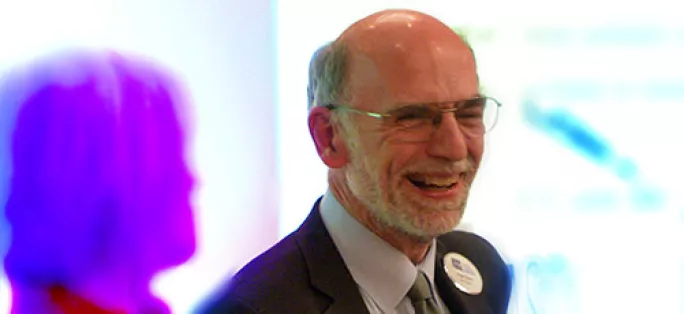‘Politicians must leave it to private and state school leaders to work together’
Peter Kent, headteacher and president of the Association of School and College Leaders, writes:
‘I refuse to yield the point that independent and state sectors cannot learn from one another... ’ If only Tristram Hunt had stopped there in his remarks about state and independent school partnerships, I would be echoing the famous phrase from the last general election and saying ‘I agree with Tristram’.
My career started with 14 years in the independent sector before moving to the state sector. In the 18 years that I have spent in state schools I have noticed more similarities than differences between the two sectors.
Good teaching is the same wherever one is and working with pupils, parents and governors is equally rewarding (and just sometimes, similarly challenging). I don’t see myself as being on the receiving end of the gifts that the independent sector has to offer, but I relish the chance to work with them as equals.
My own school is part of a long-standing partnership with Rugby School. I have valued the opportunity to tap into their expertise in teaching the extended project, where access to resources and well informed speakers have proved significant assets to my own students. They have also enthusiastically participated in our work as a teaching school, as one of our strategic partners on events designed to tease out best practice in maximising student learning and progress.
Often we have organised joint events. Every year along with other schools in the town we arrange a business and enterprise conference for post 16 students, giving pupils a chance to develop leadership and team building skills. Together we invite parents and former students from a range of professional backgrounds who combine to point students towards a range of future careers.
Why do we all work together? Not because anyone has told us to or because we fear there might be a financial penalty if we don’t. The answer is that the relationship is built upon mutual trust and a conviction that what we are doing helps all of our students. In my experience the best partnerships are always like that. Of course they reflect moral purpose, but also an informed self-interest linked to getting the best possible deal for the pupils and families that we serve.
During this year I have the privilege to serve as ASCL’s president. Over recent weeks I have spoken at regional conferences to over 1,200 members about our work on the self-improving system. At its heart is the theme of trust. In this specific case we need to foster partnerships that are built on trust, rather than taking micro-management to the level of controlling sports fixtures to ensure that they address a political agenda.
However, the need for trust goes beyond independent-state partnerships. The time has surely come for policy-makers to take a step back. Of course government has a critical part to play in creating the right climate and incentivising behaviour, but after that they need to allow school and college leaders, regardless of sector, to take the agenda forward.
Central to ASCL’s blueprint for a self-improving system is a quote from Joel Klein, the former chancellor of the New York City Department of Education: “You can mandate adequacy; you can’t mandate greatness. It has to be unleashed.”
Compliance based upon orders from above has taken us as far as it can. Our education system desperately needs that greatness to be unleashed and leaders, rather than policy-makers, are the ones who can do it.
Keep reading for just £1 per month
You've reached your limit of free articles this month. Subscribe for £1 per month for three months and get:
- Unlimited access to all Tes magazine content
- Exclusive subscriber-only stories
- Award-winning email newsletters




